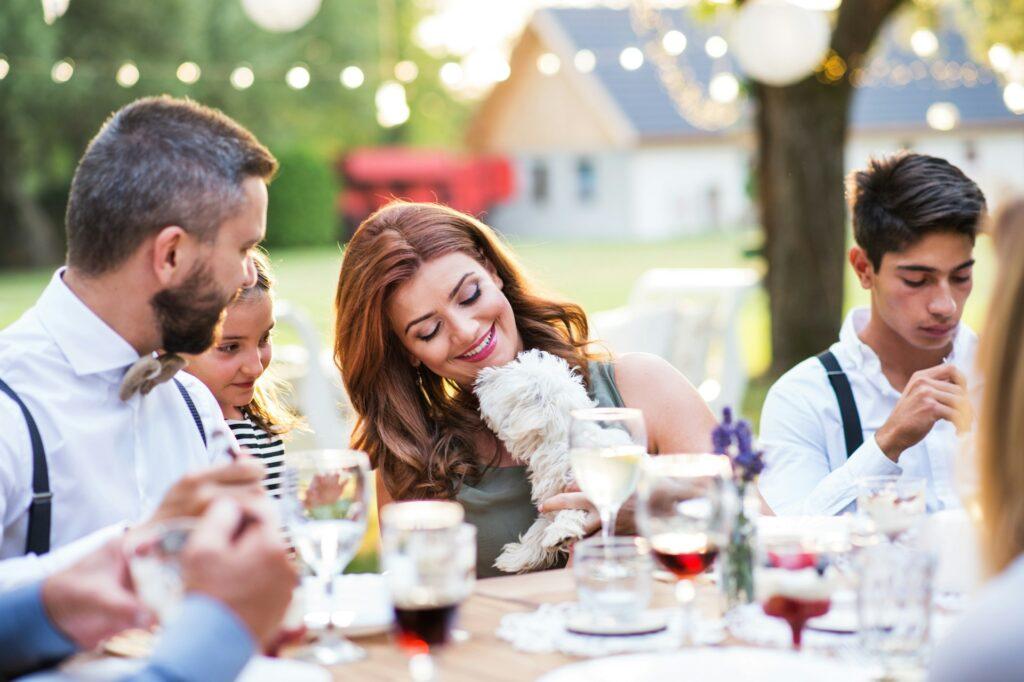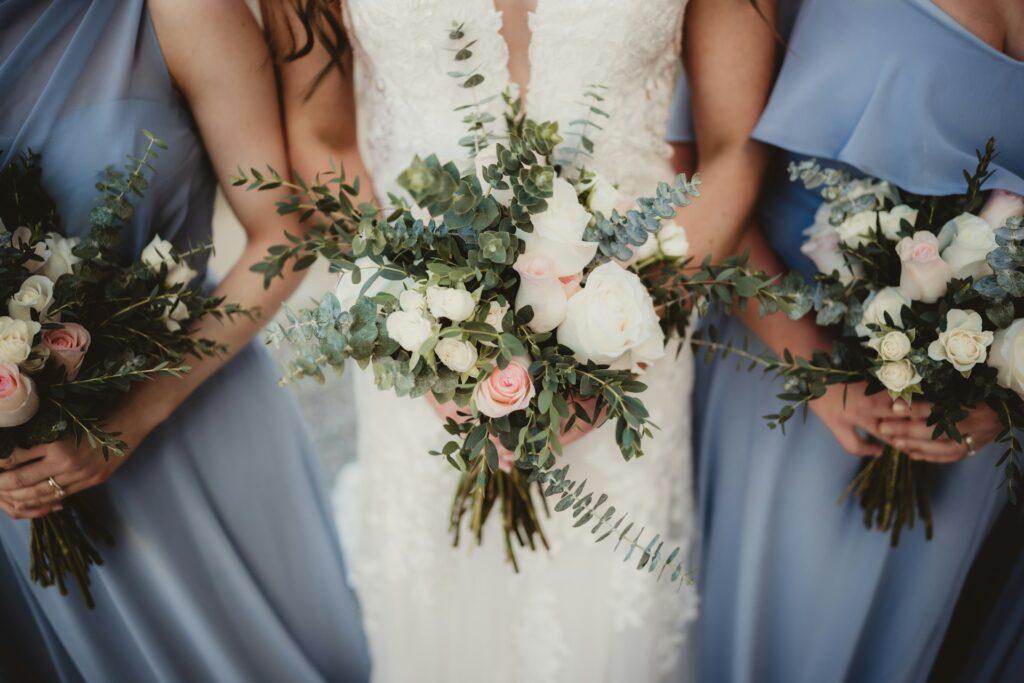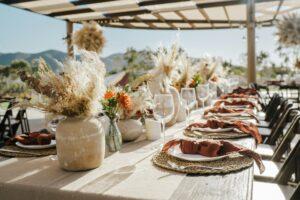There’s something quietly powerful about a small wedding. It doesn’t try to impress. It just… fits. It fits who you are, how you want to feel, and the kind of day you actually want to remember.
These aren’t “scaled-back” weddings—they’re distilled. And with the right small wedding ideas, you can create a celebration that feels personal, grounded, and memorable in all the right ways.
Chris Epps, with 15+ years supporting weddings across Charlotte, NC, has seen it all: the huge, the chaotic, the deeply moving, the delightfully simple. And time after time, it’s the smaller weddings that linger in people’s memories—not because they were loud, but because they were real.
If you’re interested in learning what goes into planning a wedding, check out our full guide.
Guest List: Small Means Significant
The hardest part of a small wedding is also the most important: choosing who will be there. Not because you have to make cuts, but because your guest list sets the emotional tone for everything that follows.
- Limit your list to people you’d feel comfortable crying in front of.
- Invite those who know your story—not just your names.
- Don’t “fill space.” Small weddings don’t need volume, they need presence.

A guest list under 50 means you’ll likely speak with every single person on your wedding day—and that’s a rare thing. When each guest feels seen, the energy of the day shifts. It becomes less about entertaining and more about gathering.
Most couples don’t regret cutting their guest list. They regret not doing it sooner.
Venue: Let the Setting Shape the Feeling
A small guest count opens the door to venues that would never work for a large crowd—but feel just right for an intimate celebration.
- A private home or backyard feels more elevated when you dress it intentionally—not extravagantly.
- Boutique restaurants, art galleries, historic inns—they come alive when you don’t have to fill every corner.
- Renting a weekend home or estate allows you to spend unhurried time with guests before and after the wedding.
Some of the most memorable weddings happen in places that weren’t designed for events. When the space feels personal, your wedding stops feeling like a production and starts feeling like a reflection of you.
And because small spaces tend to look “full” quickly, you can do less—and it still feels complete.
Personalization: Focus on What Only You Can Bring
In smaller weddings, you’re not trying to impress a room. You’re creating a shared experience—and you get to be more hands-on with the details that matter.
- Write your own vows—or speak them privately during portraits.
- Use the ceremony to tell your story, not just follow a script.
- Include objects that carry meaning: heirlooms, letters, shared books, family traditions.
Most wedding ceremonies are designed to be witnessed. Small ceremonies can be designed to be felt. That subtle shift allows for gestures that wouldn’t land in a large room—like giving each guest a handwritten note, or inviting everyone to speak a one-line blessing during the ceremony.
What’s personal is what people remember. It’s also what doesn’t need explanation.
Atmosphere: Create a Mood, Not a Look
In large weddings, design often becomes about filling space. In small weddings, design is about framing emotion.
- One long communal table changes the flow of dinner—it feels like family, not assigned seating.
- Mixed candles, natural greenery, and personal objects say more than towering floral displays.
- Seating that looks and feels like a living room invites guests to stay longer—and relax into the evening.

A room with 30 guests doesn’t need grandeur. It needs intention. When décor choices come from the question “How do I want people to feel here?” rather than “What will look good in photos?”—you get both atmosphere and authenticity.
The best-designed small weddings don’t aim for Pinterest perfection. They aim for warmth—and they usually get both.
Ceremony: Treat It Like a Conversation, Not a Performance
The biggest difference between a large and small wedding ceremony is the sense of distance. One feels like a stage. The other, like a moment shared between friends.
- Consider circular or semi-circle seating to bring guests closer.
- Invite a sibling or friend to officiate—it changes the entire tone of the ceremony.
- Include a ritual that reflects your relationship: writing a letter to your future selves, planting something together, sharing a favorite quote or memory.
In small settings, people listen differently. They feel differently. You don’t need to “wow” anyone. You just need to be honest—and still.
When you’re not performing, the room breathes with you. That kind of ceremony feels like something sacred happened—even if no one can quite describe what.
Budget: Less Volume, More Value
Small weddings don’t automatically cost less. But they give you more freedom to spend on what matters, and skip what doesn’t.
- Splurge on one or two meaningful upgrades: a private chef, live music, or custom paper goods.
- Eliminate line items that don’t apply: extra rentals, elaborate transportation, or oversized venues.
- Consider allocating more to experiences—like a welcome dinner, post-wedding brunch, or guided group activity.
A guest list of 25 means every dollar stretches further. You can afford better photography, better food, or even multiple outfits—because you’re not multiplying every cost by 100.
The most valuable thing you can buy with your budget is time: time to connect, breathe, enjoy, and remember. A small wedding gives you that by design.
Energy: Quiet Doesn’t Mean Boring
One of the biggest surprises for couples who choose small weddings is how much fun they still are. Not “DJ and dance floor” fun (though you can have that too), but joyful, immersive, real fun.
- Host a wine tasting or backyard dinner the night before—it sets the tone.
- Invite guests to share stories, not just speeches. Real laughter always beats rehearsed lines.
- End the night how you actually want to—singing with your friends, sitting by a fire, playing your favorite songs with no microphone in sight.
When everyone in the room knows each other—or gets to know each other—the energy becomes less “crowd” and more “gathering.”
The best part? You’re not missing anything. You’re just skipping what doesn’t matter.
Final Thoughts: The Power of Less
A small wedding is not a “simpler” version of a big one. It’s a different equation entirely. You’re not reducing. You’re refining. You’re creating something that fits exactly—and nothing more.
The right small wedding ideas help you plan not just a day, but an experience: one where you feel everything, remember everything, and end the night knowing every choice made sense.
And when you need a team who knows how to make smaller events feel elevated, complete, and quietly stunning, Chris Epps and Charlotte Party Rentals are ready to support you—with the kind of experience that doesn’t shout, but delivers.


